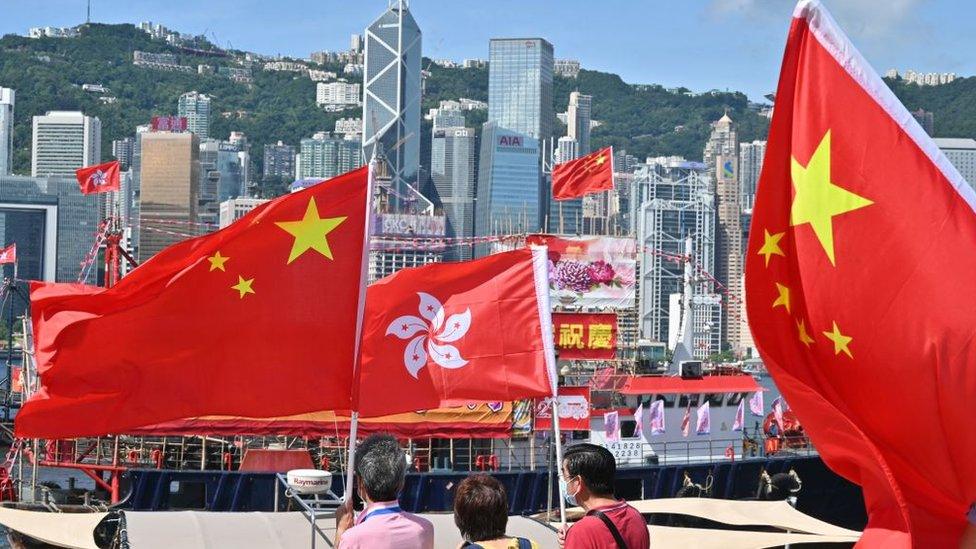Hong Kong security law: Carrie Lam dismisses concerns over rights
- Published
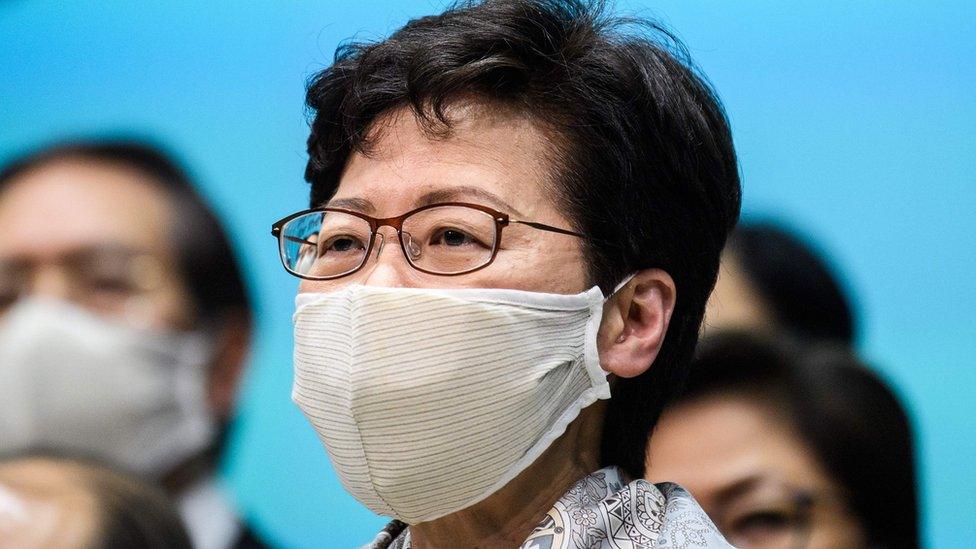
Hong Kong's leader Carrie Lam has said other countries "have no place" interfering in the territory, as she robustly defended a controversial national security law planned by China.
The law would ban treason, secession, sedition and subversion. Critics say it would limit the city's freedoms.
But in her weekly press conference, Ms Lam said it was a "responsible" move to protect the law-abiding majority.
She denied that the law would curtail the rights of Hong Kongers.
These rights - set out in the Basic Law which is Hong Kong's mini-constitution - have been in place since it was handed back to China in 1997 by the UK. The Basic Law guarantees certain freedoms to the territory, such as the right to protest, which do not exist on the mainland.
At the weekend, there was a brief return to the protests seen last year, with police firing tear gas as thousands of people took to the streets.
What is happening with the law?
It is not actually a law yet but a proposal - being called a "draft decision" - that will be put to a vote at China's rubber-stamp parliament, the National People's Congress (NPC), this week.
Once that vote is passed, the proposal will be fleshed out into a draft law and could be in force by the end of June.
Ever since it was announced, it has faced fierce criticism internationally, but Ms Lam said other countries had "no place in interfering with this arrangement".
No country would tolerate flawed national security legislation, she said, and Hong Kong, as part of China, was no different.
Hong Kongers give their reaction to the controversial national security law in May
Opponents say the proposed law is a direct attempt to curtail the city's unique freedoms.
How did she address concerns?
Ms Lam repeatedly said there had been no detail yet, but that the text of China's "draft decision" should reassure the public.
She also spoke of the "positive response" from the public in the past few days, saying it "flies in the face of what those overseas politicians are saying".
The bill would target "a handful of people" involved in terrorism or subversion, she said, and anyone worried about it should wait for the full details to be released.
Hong Kong's freedoms, vibrancy and core values "will continue to be there", she said, but added: "Rights and freedoms are not absolute."
The law would enhance Hong Kong's status as a global financial centre, rather than damage it, she said, calling those fears "totally groundless".
There is also concern that the law could allow China to install its own law enforcement agencies in Hong Kong, alongside the city's own.
Ms Lam said fears that this could lead to people being arrested retroactively for taking part in protests were "imagination".

'Hard time convincing critics'
Lam Cho Wai, BBC News Chinese
Carrie Lam tried to assure the public that the law will only target "small groups of illegal criminals" - but could offer little when pressed for details.
That's also her primary line of defence. She repeatedly said the spirit of the resolution put forward by Beijing was no cause for concern and the city should wait for details of the actual law.
But the leader will have a hard time convincing critics.
The respected Hong Kong Bar Association has already warned that there is no assurance the new law will comply with the provisions of the International Covenant on Civil and Political Rights.
Sunday's protests, defying a ban on public gatherings of more than eight people, were the largest in months.
Despite Ms Lam's belief that the law has had a "positive response", there are already calls for more protests and nobody knows how big they could get.

What is the background?
Hong Kong saw months of increasingly violent protests last year, sparked by a bill which would have allowed criminal suspects to be extradited to mainland China.
The bill was eventually dropped but by that stage the protests had escalated to include calls for more democratic freedoms for Hong Kong.
Although those protests died away, in part after pro-independence groups made significant gains in local elections, anti-mainland sentiment remains high in the territory.
Under the Basic Law Hong Kong is responsible for its own internal affairs and security. It was always meant to have passed its own national security law but never could because such laws were so unpopular.
So critics see this as Beijing's attempt to impose its own version on Hong Kong after a tumultuous year.
- Published22 May 2020
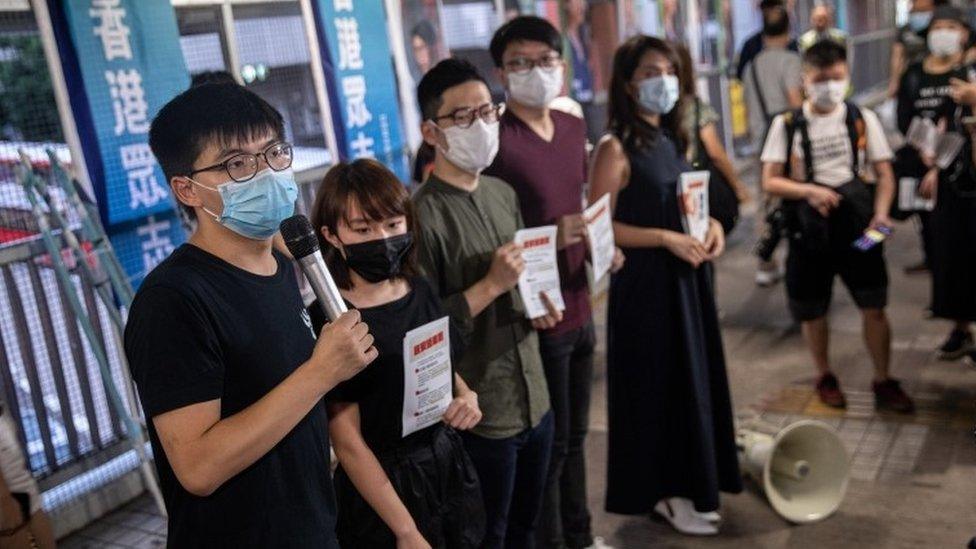
- Published24 May 2020
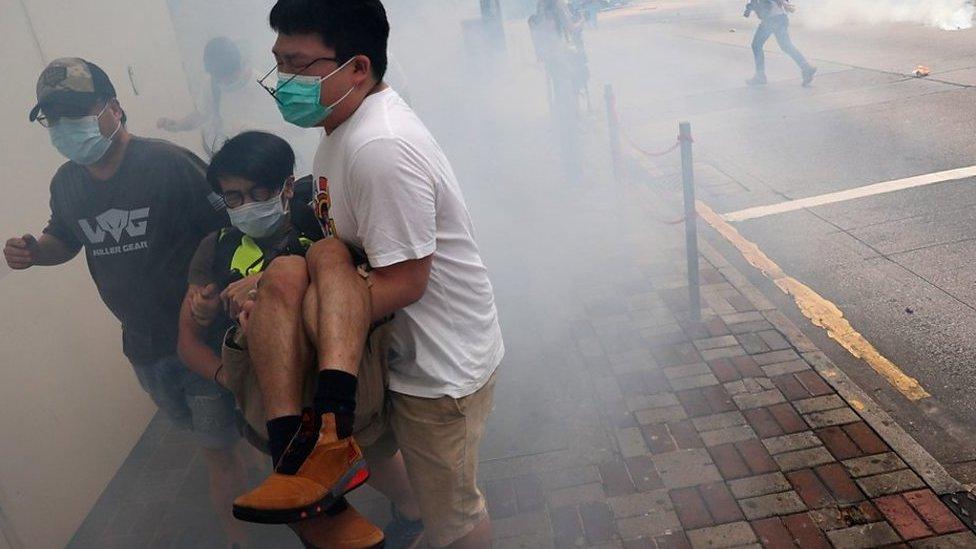
- Published22 May 2020
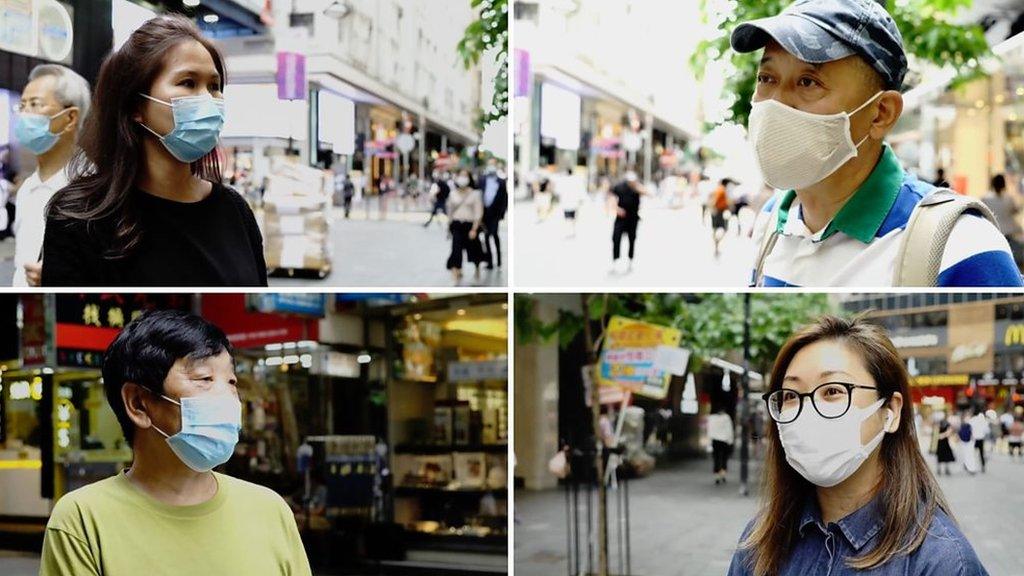
- Published19 March 2024
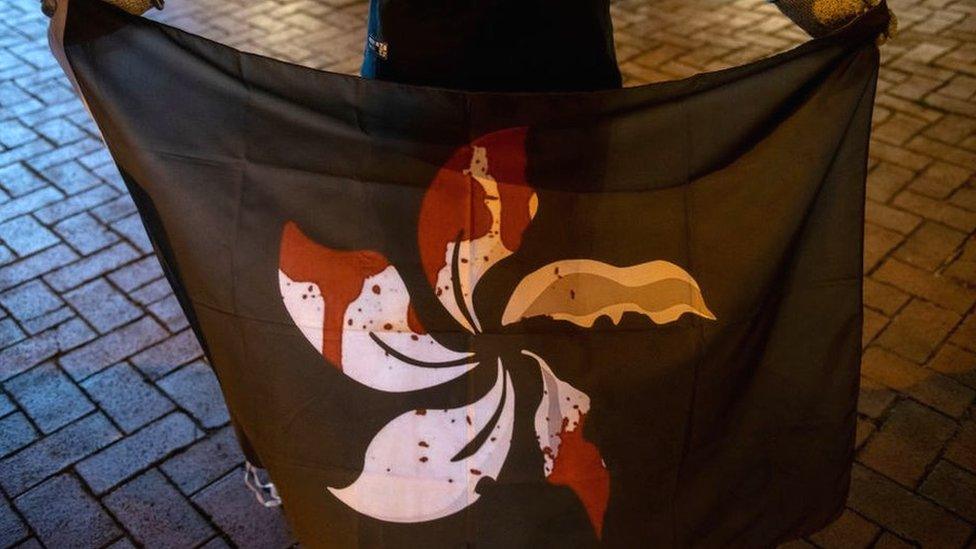
- Published21 May 2020
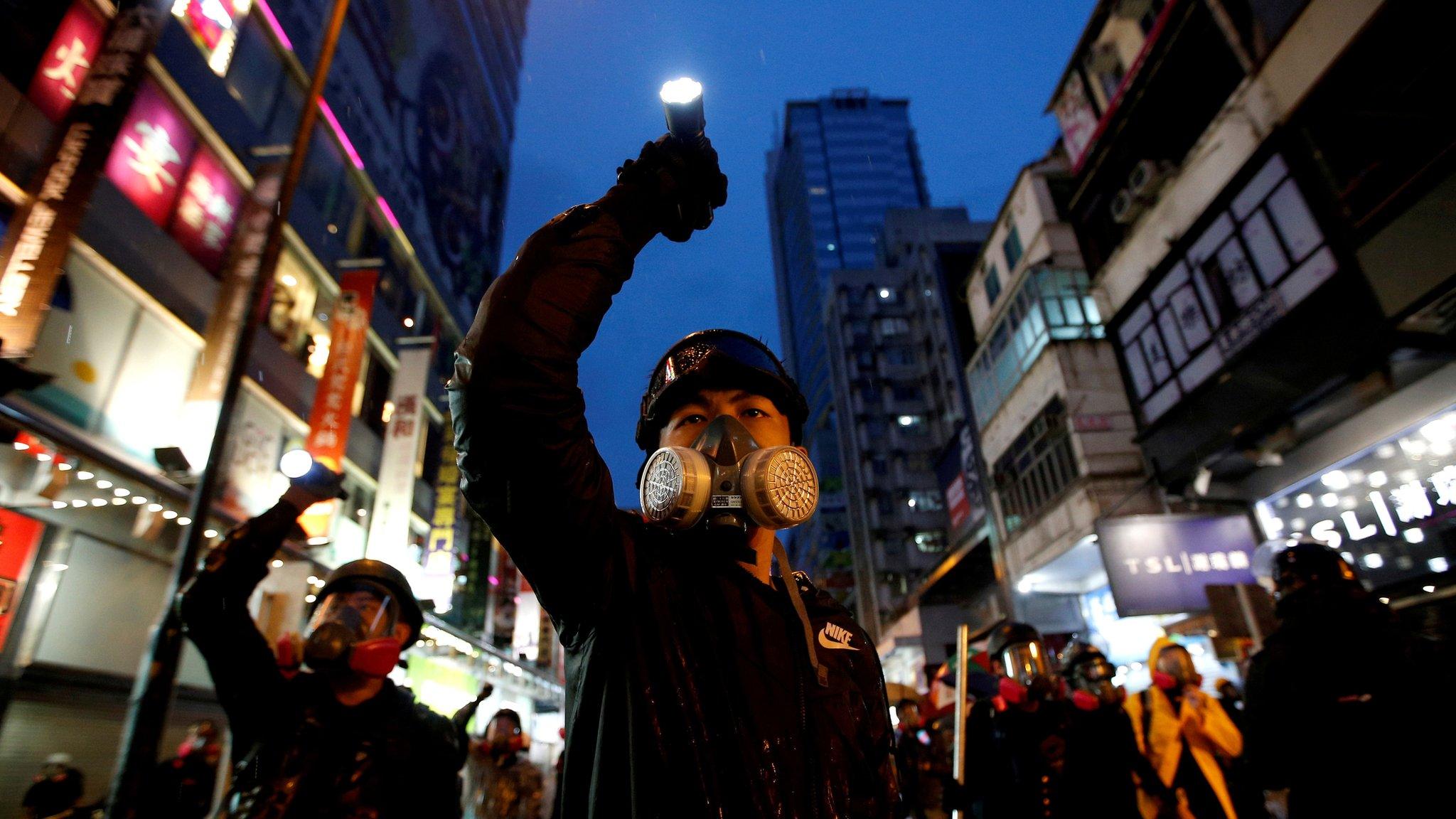
- Published22 May 2020
- Published22 May 2020
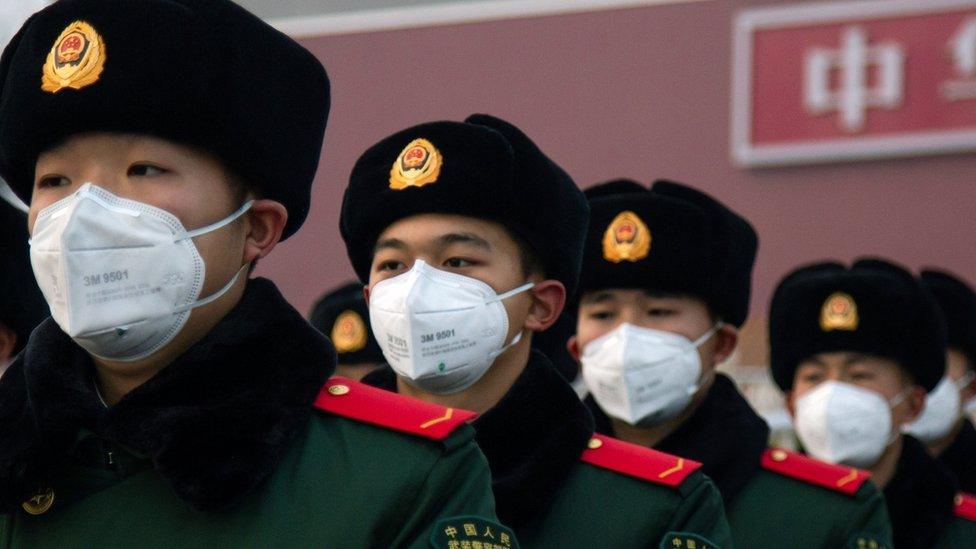
- Published21 May 2020
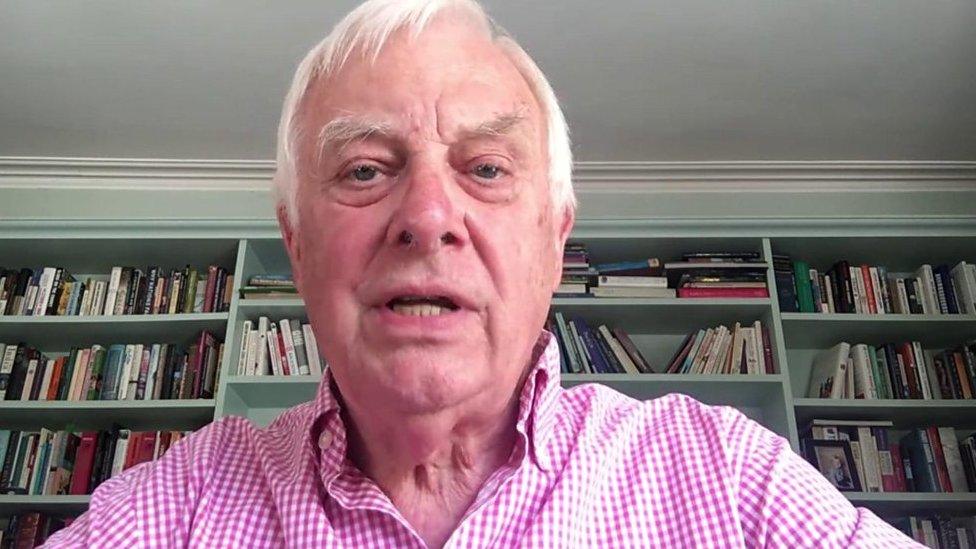
- Published28 December 2019
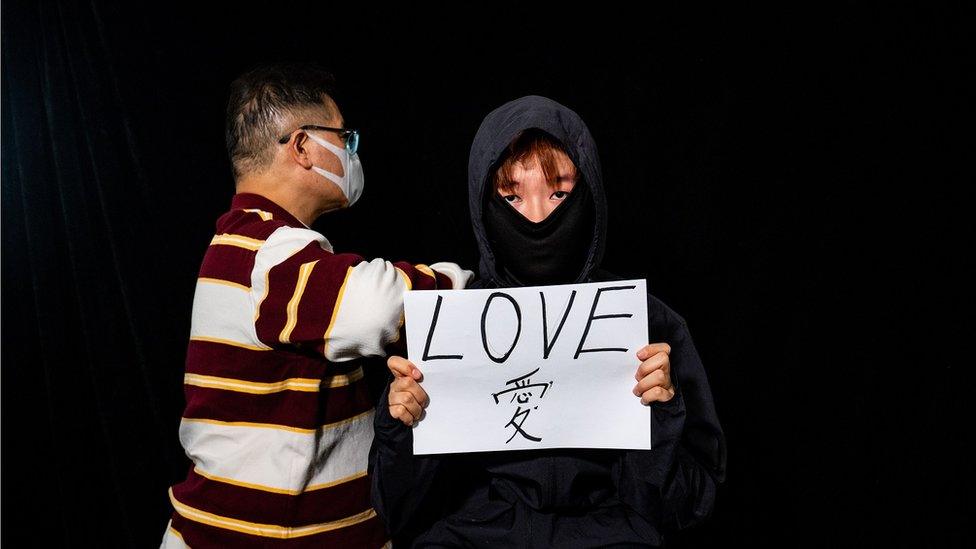
- Published1 July 2022
